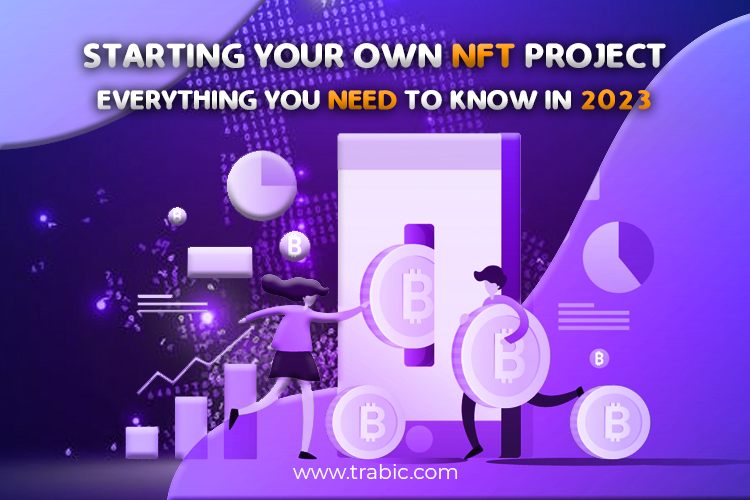What Are NFTs, And What Are They Used For In 2023?
NFTs (Non-Fungible Tokens) are unique digital assets verified on a blockchain network like Ethereum. They represent ownership of a specific digital item, such as art, music, video games, and other creative works.
In 2023, Non-Fungible Tokens are primarily used for collecting, trading, and selling digital art and other unique digital assets. They have become a popular way for artists and creators to monetize their digital works, as Non-Fungible Tokens allow for creating a verifiable and traceable record of ownership.
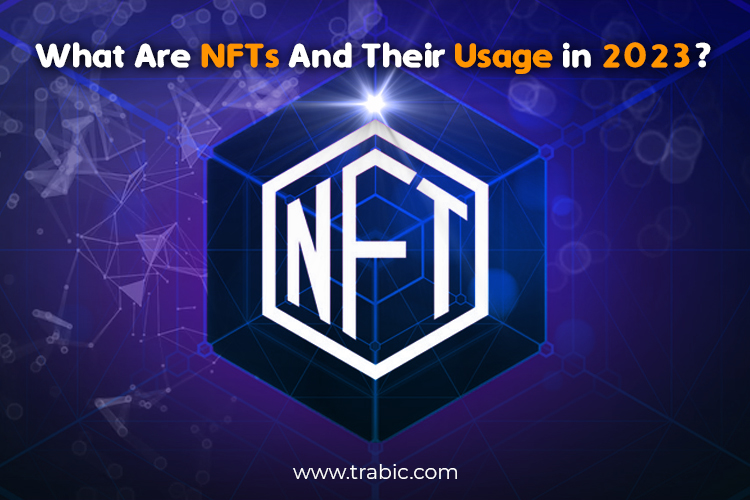
It can also be used for digital identity verification, as they provide a unique, tamper-proof digital signature that can be used to verify a user’s identity or ownership of a particular asset. Non-Fungible Tokens represent a significant shift in how we think about digital ownership and value. They will likely play an essential role in the digital economy. Non-Fungible Tokens have gained much attention recently as a new way of owning and selling digital assets.
Why Might Someone Consider Starting An NFT Project?
There are numerous reasons why someone might contemplate before starting an NFT project. Non-Fungible Tokens deliver a unique way for creators and artists to monetize their digital works. By selling Non-Fungible Tokens, creators can earn revenue for their work directly without relying on intermediaries or traditional publishing models.
It provides a method to prove the authenticity of digital works, which is especially important for rare or unique pieces. This can help to reduce fraud and increase trust in digital marketplaces. Non-Fungible Tokens can build communities around specific digital works or projects. This can be especially valuable for creators looking to connect with their audience and produce a dedicated following.
Non-Fungible Tokens represent a new frontier in the digital economy, and starting an NFT project can be a way to explore this emerging technology and its potential applications. Some people may be interested in starting an NFT project as an investment opportunity, as Non-Fungible Tokens have the potential to appreciate over time. Starting an NFT project can allow creators, innovators, and investors to explore a new frontier in the digital economy and create something of value that others can share and appreciate.
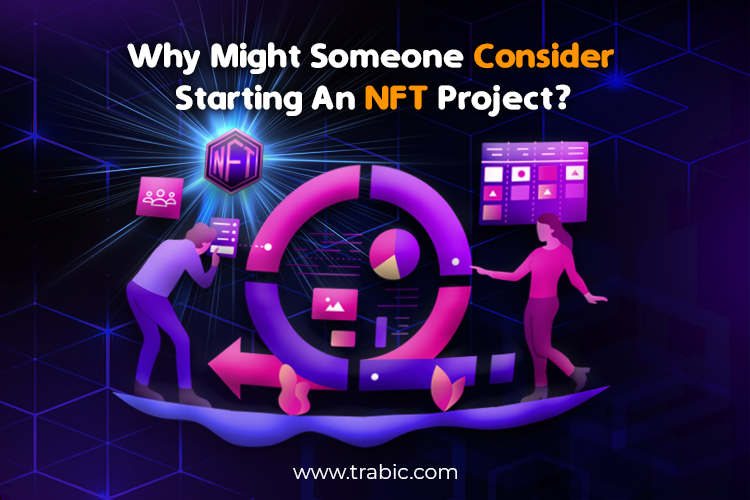
Unique Digital Asset Creation
NFTs allow creators to create unique digital assets that are verifiably scarce, unlike digital files that can be duplicated endlessly. This can increase value for the creator and the collectors who own the Non-Fungible Tokens. These are unique digital assets stored on a blockchain. The blockchain is a decentralized public ledger on which ownership and transaction information for each NFT is recorded.
NFTs provide a way for creators to make their digital assets verifiably scarce. Each NFT is distinct and cannot be duplicated or copied. This adds value to the asset because it ensures a limited number of copies are available. Non-Fungible Tokens provide digital ownership of the asset, meaning the creator can sell the NFT without selling the actual asset. This is different from traditional ownership, where the ownership of a physical asset is transferred along with the sale.
With NFTs, the creator retains ownership of the original asset, and the collector owns the NFT representing the ownership. Non-Fungible Tokens deliver a way to confirm the authenticity of the digital asset. This is because the ownership and transaction information is stored on a blockchain, which is a tamper-proof and decentralized ledger. This ensures the asset is unique and original, not a copy or a forgery.
NFTs are interoperable and can be used on multiple platforms and ecosystems. This permits creators to reach a broader audience and create a broader network of collectors and fans. Non-Fungible Tokens allow creators to design and create their digital assets in different ways. This includes creating one-of-a-kind digital assets, limited edition NFT collections, or even serialized collections with multiple versions or editions of the same asset.
Overall, NFTs help to create unique digital assets by providing verifiable scarcity, digital ownership, authenticity, interoperability, and flexibility. This opens up new possibilities for creators to monetize their digital creations, retain ownership and control, and reach a broader audience.
Ownership and Control
NFTs provide a way for creators to retain ownership and control over their digital creations, even after they have been sold. This is because the ownership of an NFT is recorded on a blockchain, which is a public and decentralized ledger that we cannot alter.
Non-Fungible Tokens provide ownership and control over digital assets in a way that was impossible before. These are kept on a blockchain, which is more of a decentralized and public ledger. This means that the ownership of an NFT is recorded on the blockchain, and the ownership information is transparent and cannot be altered. This ensures that the creator retains ownership of the digital asset, even after it has been sold. NFTs use smart contracts to enforce ownership and control.
A smart contract is a self-performing contract with the agreement terms between customer and vendor being instantly written into lines of code. This means creators can set conditions and rules for selling and using digital assets, such as royalty fees, usage restrictions, or resale rights. These are transferable, meaning creators can sell their digital assets without transferring ownership of the original asset. This is because the NFT represents ownership of the asset, not the asset itself.
This allows creators to retain ownership and control over their original assets, even if the NFT changes hands multiple times. Non-Fungible Tokens deliver a method to verify the authenticity of a digital asset. This is because the ownership and transaction information is stored on a blockchain, which is tamper-proof and decentralized. This ensures the asset is unique and original, not a copy or a forgery.
We can transfer ownership of an NFT quickly and securely through the blockchain. This allows creators to sell their digital assets and transfer ownership to the buyer securely and transparently. Non-Fungible Tokens provide ownership and control over digital assets using decentralized ownership, smart contracts, transferability, authentication, and ownership transfer. This allows creators to retain ownership and control over their digital creations, even after they have been sold or transferred to other parties.
Monetization
NFTs deliver a unique way for creators to monetize their digital creations, whether music, art, videos or any other digital asset. Non-Fungible Tokens can be sold directly to collectors or auctioned off, and creators can earn a percentage of the resale value each time the NFT changes hands. Non-Fungible Tokens provide monetization opportunities for creators by allowing them to sell their unique digital assets as one-of-a-kind or limited edition collectibles.
It allow creators to sell their unique digital assets as one-of-a-kind or limited-edition collectibles. Each NFT is unique and cannot be duplicated or replicated, providing verifiable scarcity to the asset. This scarcity can increase the asset’s value and make it more desirable to collectors. Creators can include royalty fees in the smart contract of the NFT. This means they will receive a percentage of the sale every time the NFT is resold on the secondary market. This creates a new revenue stream for creators, allowing them to benefit from the success of their digital assets beyond the initial sale.
NFTs allow creators exclusive access to their digital creations to fans and collectors. This can include special perks or experiences only available to NFT holders, such as backstage access, special editions, or early access to new releases.
Non-Fungible Tokens can be used as a branding and marketing tool for creators. They provide a new way to showcase their digital creations and create buzz around their work. This can lead to increased visibility and new monetization opportunities. NFTs allow multiple collectors to own a share of a digital asset through fractional ownership. This further allows creators to monetize their digital creations by selling fractional ownership shares to multiple collectors.
Non-Fungible Tokens provide monetization opportunities for creators by allowing them to sell their unique digital assets as one-of-a-kind or limited edition collectibles, including royalties, exclusive access, branding and marketing, and fractional ownership. This creates new revenue streams for creators and allows them to benefit from the success of their digital creations beyond the initial sale.
Increased Exposure
Non-Fungible Tokens can increase creators’ exposure as they are often featured on NFT marketplaces and social media. This exposure can lead to more sales and opportunities for collaborations and partnerships. Non-Fungible Tokens increase creators’ exposure by allowing them to showcase their unique digital assets globally. NFTs provide a global marketplace for creators to sell their digital assets to a worldwide audience. This means that creators are now unlimited by geographic location or physical exhibition space and can reach a larger audience than ever before.
Non-Fungible Tokens provide a unique method for creators to promote their digital assets through social media and other online channels. This can include showcasing the asset, creating buzz, and connecting with potential buyers and collectors. Non-Fungible Tokens provide a way for creators to build communities around their digital creations. This can include engaging with fans and collectors, hosting events, and creating online forums for discussion and collaboration.
Non-Fungible Tokens provide a secondary market for digital assets, which allows creators to benefit from increased exposure and demand over time. This means that as the popularity of the asset grows, so too does the potential for exposure and monetization. Non-Fungible Tokens are stored on a blockchain, which supplies a firm and transparent record of ownership and transaction history. This creates a level of trust and authenticity for buyers and collectors, which can increase exposure and demand for the asset.
Non-Fungible Tokens provide increased exposure for creators by allowing them to showcase their unique digital assets globally, promote them through social media and other channels, build communities, benefit from the secondary market, and establish trust through blockchain and verification. This creates new opportunities for exposure, growth, and monetization for creators in the digital world.
Community Building
Non-Fungible Tokens help in community building by creating a shared sense of ownership and engagement around a creator’s unique digital asset. Non-Fungible Tokens can help to build a community of collectors and fans around a creator’s work. This community can provide support, feedback, and opportunities for growth and collaboration. NFTs allow multiple collectors to own a share of a digital asset through fractional ownership. This means that multiple people can invest in and have a stake in the asset, creating a shared sense of ownership and community.
NFTs allow creators to engage with their fans and collectors through social media and other online channels. This can include hosting events, creating forums for discussion, and offering exclusive perks and experiences to NFT holders. Non-Fungible Tokens can provide exclusive access to the creator and their work. This can include early access to new releases, backstage access, and special editions only available to NFT holders. This creates a sense of exclusivity and community around the asset.
Non-Fungible Tokens can be used to reward community members and incentivize engagement. This can include offering special perks or discounts to NFT holders, hosting contests and giveaways, and creating loyalty programs for frequent buyers and collectors. NFTs provide a way for creators to collaborate with other artists and creators to create unique digital assets. This can include creating a series of NFTs that are collectively owned or collaborating on creating a single NFT.
NFTs help in community building by creating a shared sense of ownership and engagement around a creator’s unique digital asset. This includes shared ownership, engagement, exclusive access, rewards and incentives, and collaborations. This creates new opportunities for creators to connect with their fans and collectors, build community, and establish a loyal following in the digital world.
Innovation
Non-Fungible Tokens provide innovation in various ways in the digital world. These are still relatively recent technology, with plenty of room for innovation and experimentation. Creators can explore new ways of using NFTs and blockchain technology to create and sell digital assets. NFTs provide a new way of owning and trading digital assets, creating a digital ownership economy. This innovation could revolutionize how creators monetize their work and collectors invest in digital assets.
NFTs can be used to tokenize real-world assets like artwork, real estate, and even cars. This innovation creates new opportunities for asset ownership and trading, making it more accessible and efficient. Non-Fungible Tokens provide a new business model for creators, allowing them to monetize their digital assets in new ways.
This includes selling limited edition NFTs, fractional ownership, and creating loyalty programs for frequent buyers and collectors. NFTs are stored on a blockchain, creating a decentralized ownership and transaction history system. This innovation increases transparency, security, and trust in the digital economy. Non-Fungible Tokens can be used across multiple platforms and ecosystems, creating system interoperability. This innovation allows for increased efficiency and accessibility for creators and collectors.
NFTs provide innovation in the digital world through new forms of digital ownership, tokenization of real-world assets, new business models, decentralized systems, and interoperability. This creates new opportunities for creators and collectors to monetize and invest in digital assets and can revolutionize the path we think about ownership and trade in the digital economy.
Why Are NFTs Becoming So Popular In 2023?
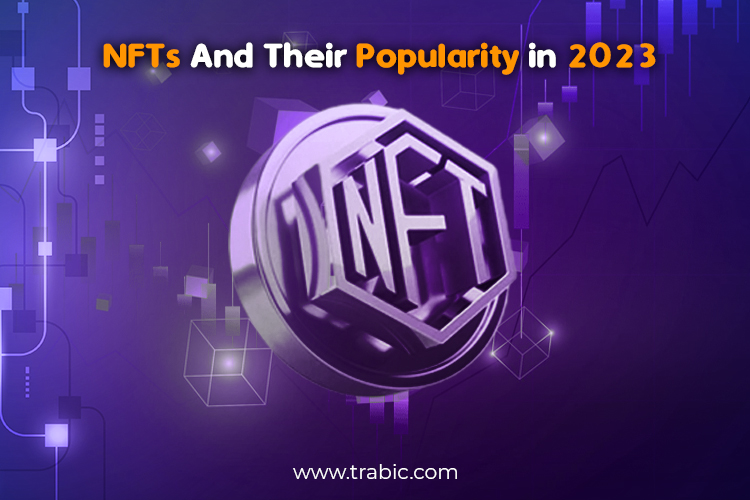
NFTs allow people to own unique digital assets that cannot be duplicated or replicated. This has significant implications for the art world and other creative industries, allowing creators to monetize their digital creations in a new way. Over the past few years, NFTs have gained more mainstream acceptance and adoption, with high-profile sales and celebrity endorsements. This has helped to legitimize the concept of digital ownership and increased interest in Non-Fungible Tokens. NFTs offer an investment opportunity, with some NFTs selling for millions of dollars. This has attracted investors interested in buying and selling NFTs for profit.
NFTs are an emerging technology with many potential use cases beyond digital art, such as gaming, music, and virtual real estate. This has sparked interest from developers and entrepreneurs in exploring the possibilities of NFTs. Non-Fungible Tokens are created on blockchain technology, which permits decentralization and increased security. This provides trust and transparency, which is impossible with traditional digital assets.
In summary, Non-Fungible Tokens are becoming popular in 2023 due to their unique digital ownership, increased acceptance and adoption, the opportunity for investment, emerging technology, and decentralization. As Non-Fungible Tokens evolve and find new use cases, their popularity will likely continue to grow.
What Is The Future Of NFTs?
The future of NFTs is promising, and they will likely continue to evolve and be used in various industries. While Non-Fungible Tokens have attained popularity in the art world, they have the potential to be used in many other industries, such as gaming, music, and sports. As more industries adopt NFTs, the market for Non-Fungible Tokens will likely grow. They are typically associated with digital assets, but there is potential for them to be used for physical assets as well. For example, an NFT could be used to verify the authenticity of a luxury item, such as a handbag or watch.
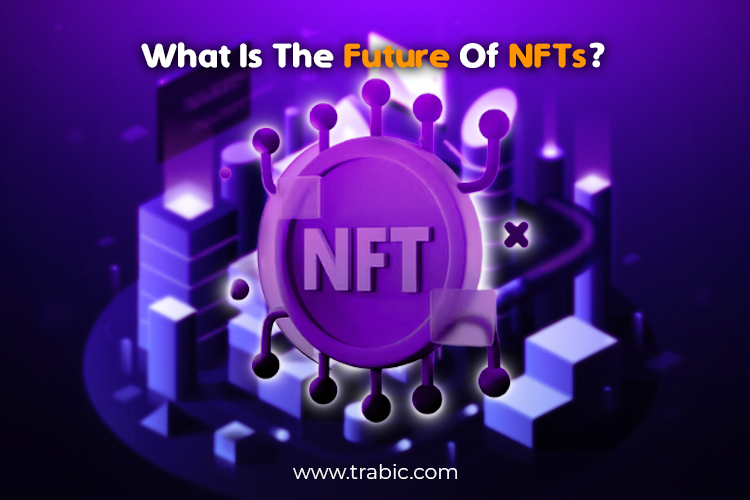
They have the potential to be used for social impact, such as for charitable causes or to support environmental initiatives. By creating NFTs with a portion of the proceeds going to a charitable cause, creators and collectors can make a positive impact. The technology behind Non-Fungible Tokens is still evolving. There is potential for new developments, such as increased interoperability between different blockchains, improved storage and transfer capabilities, and more advanced smart contract functionality.
As Non-Fungible Tokens grow in popularity, there may be increased regulation to protect buyers and sellers from fraud and ensure compliance with tax laws. The future of NFTs is bright, with potential for growth in many industries, continued technology innovation, and social impact. While there may be challenges and regulations ahead, it will likely continue to play an essential role in the digital economy.
